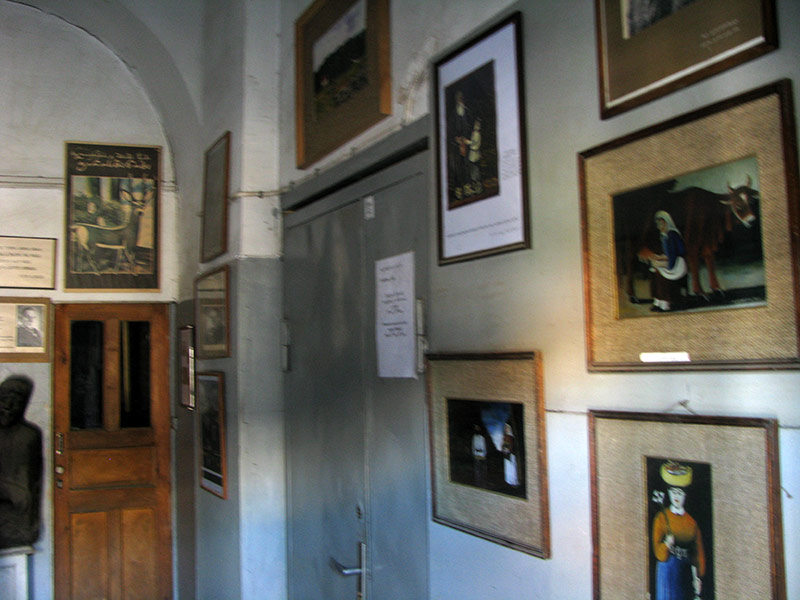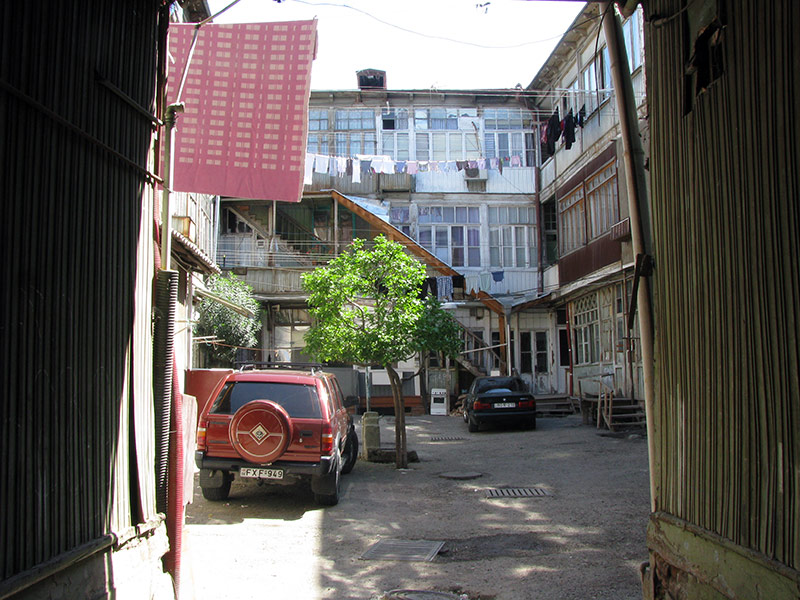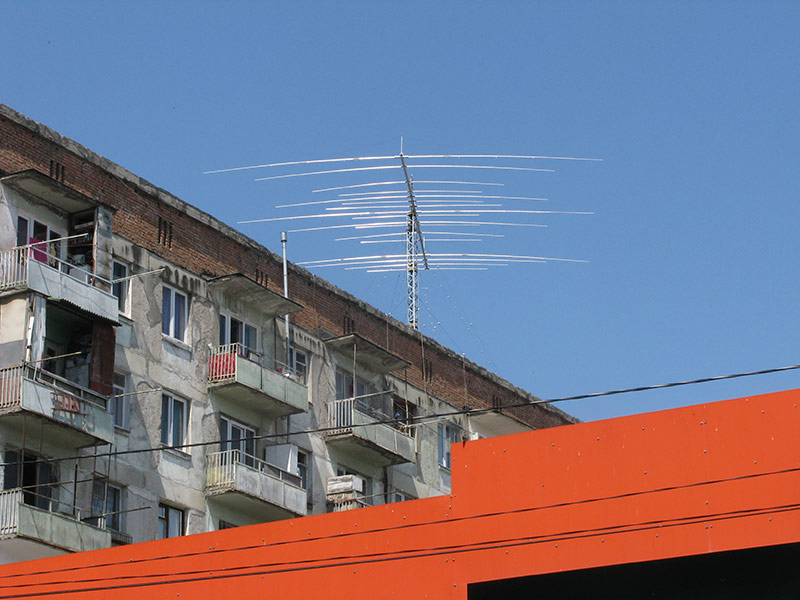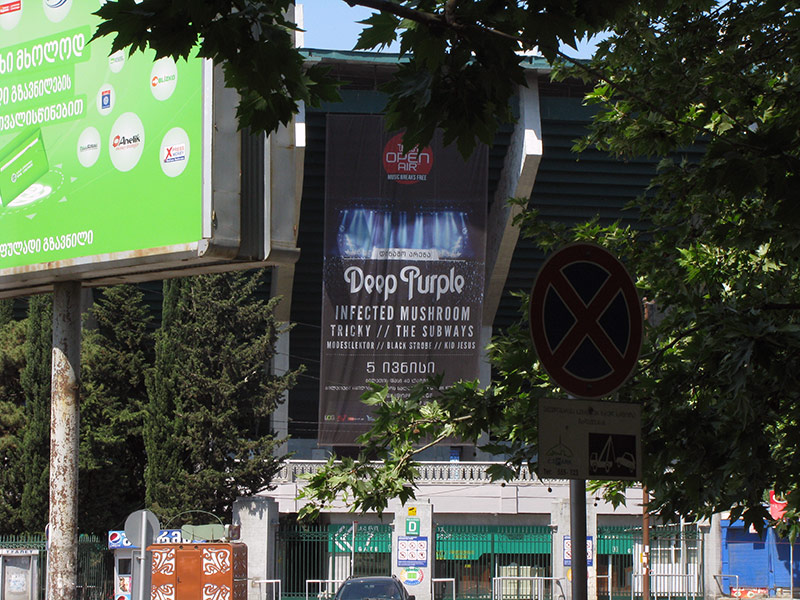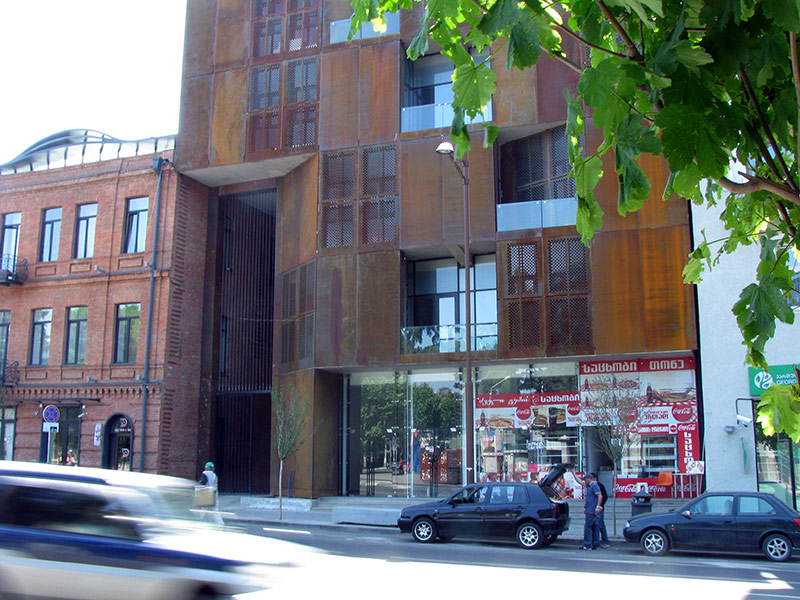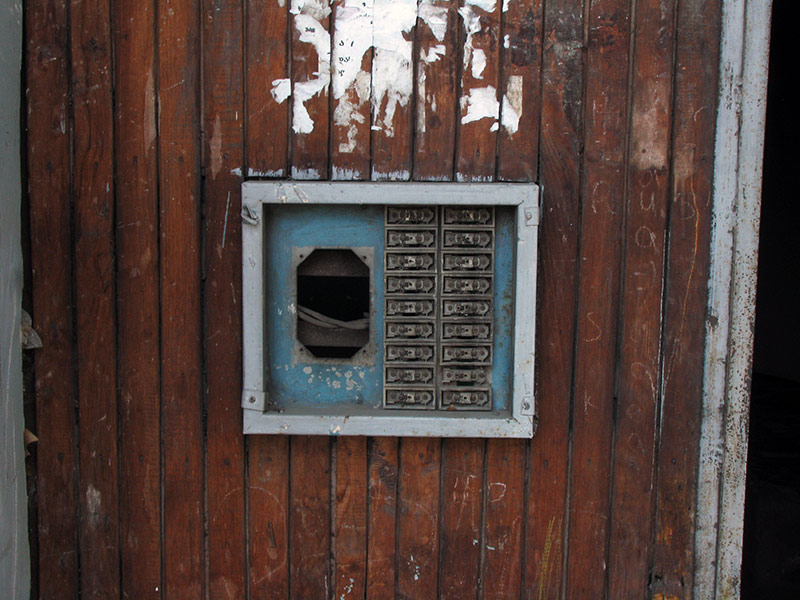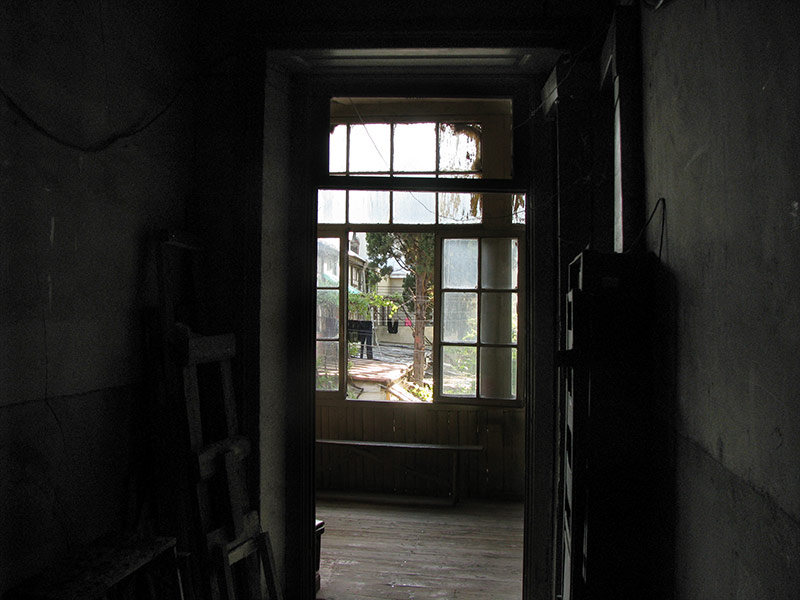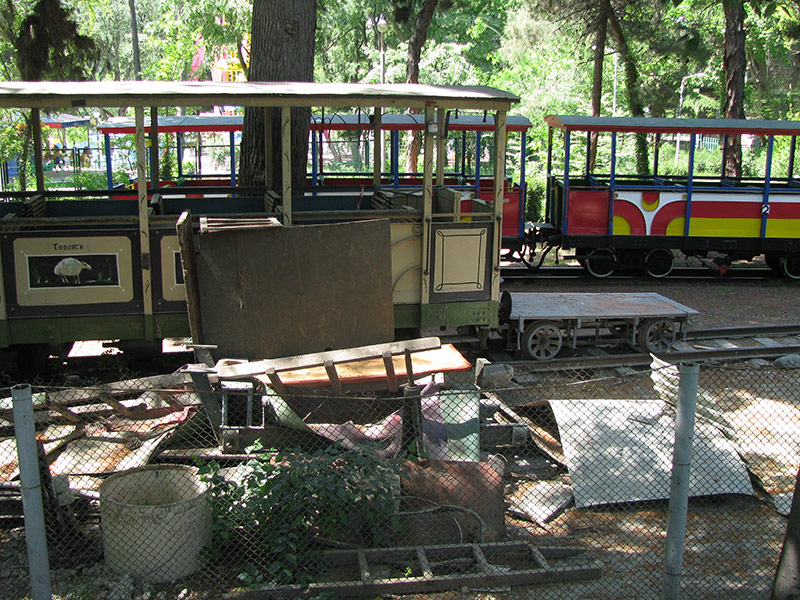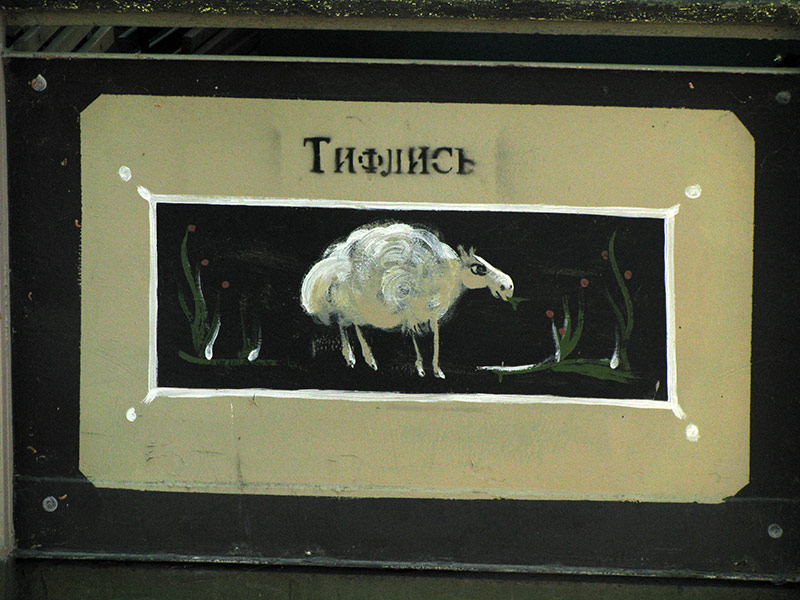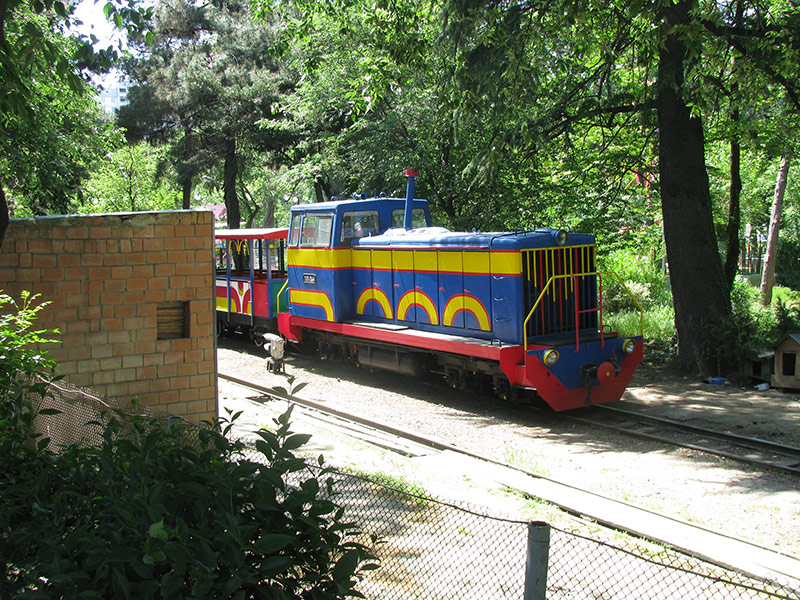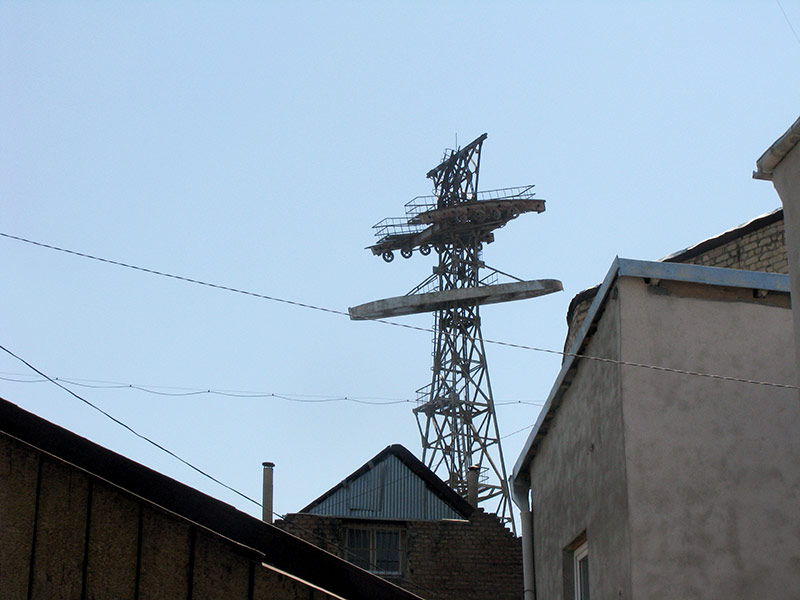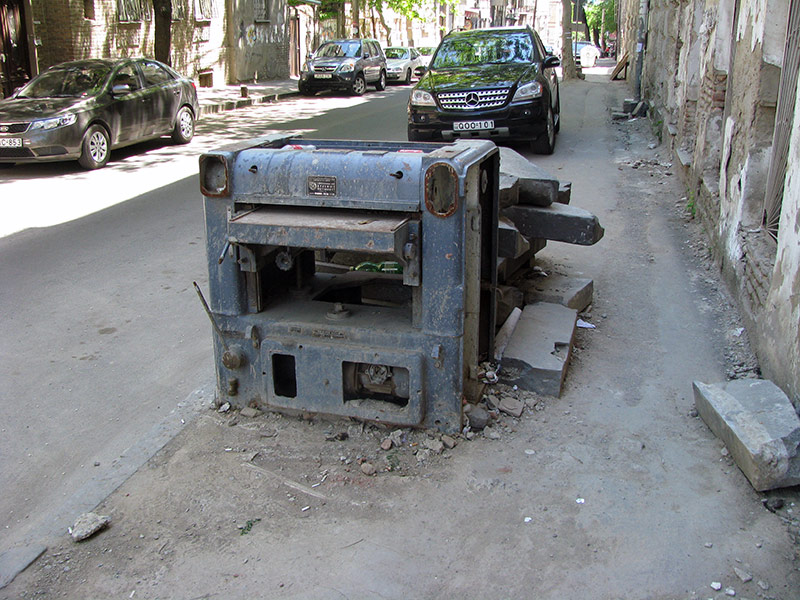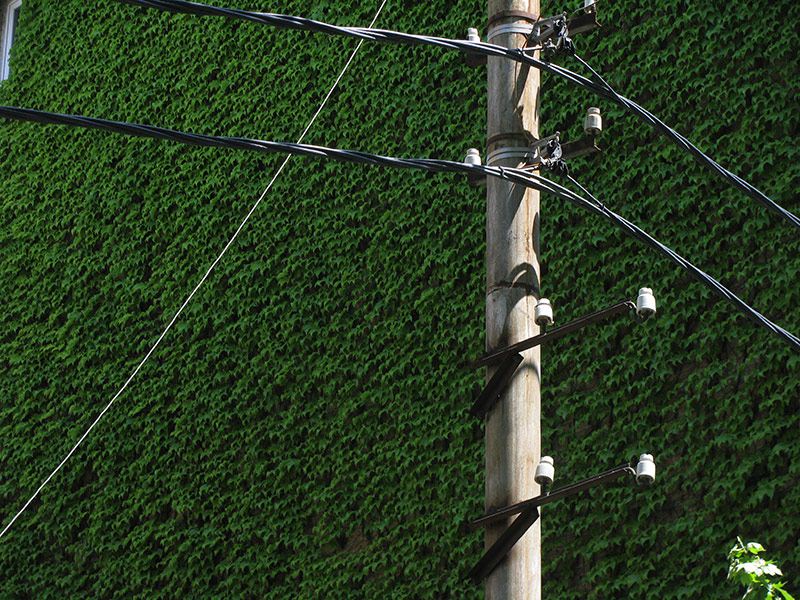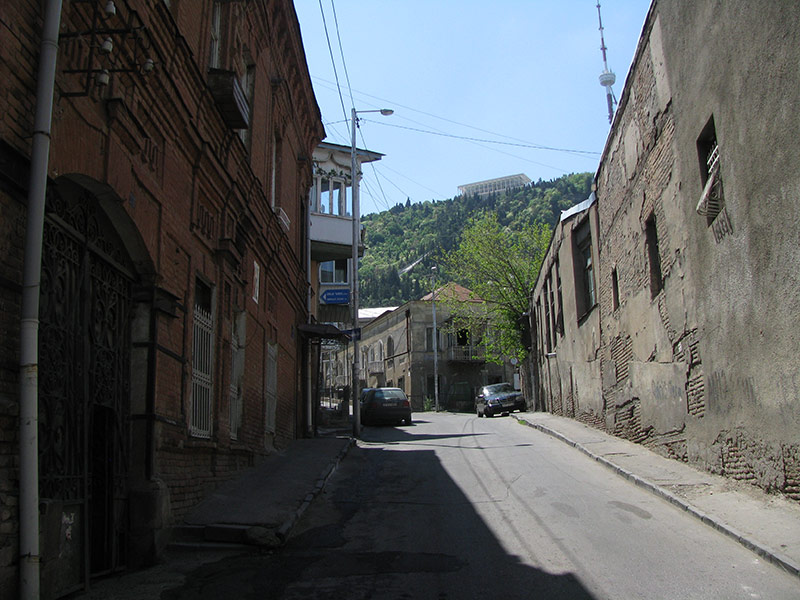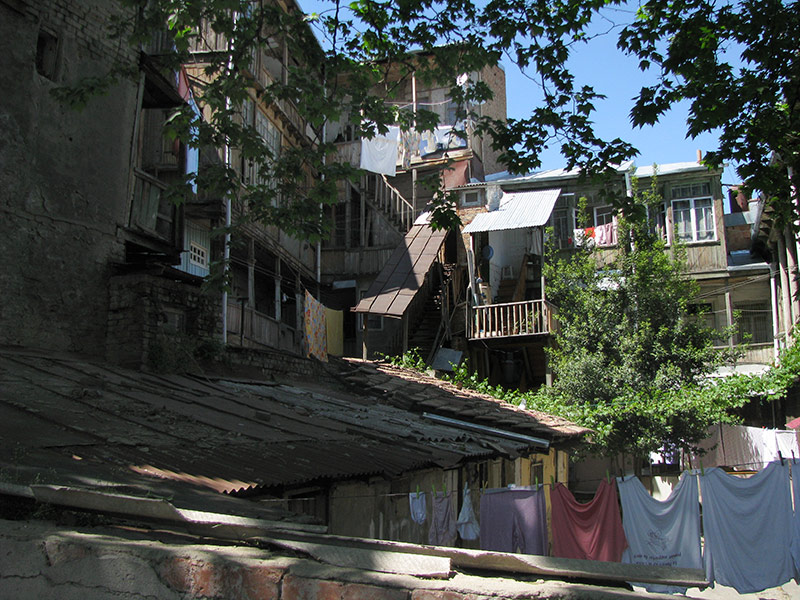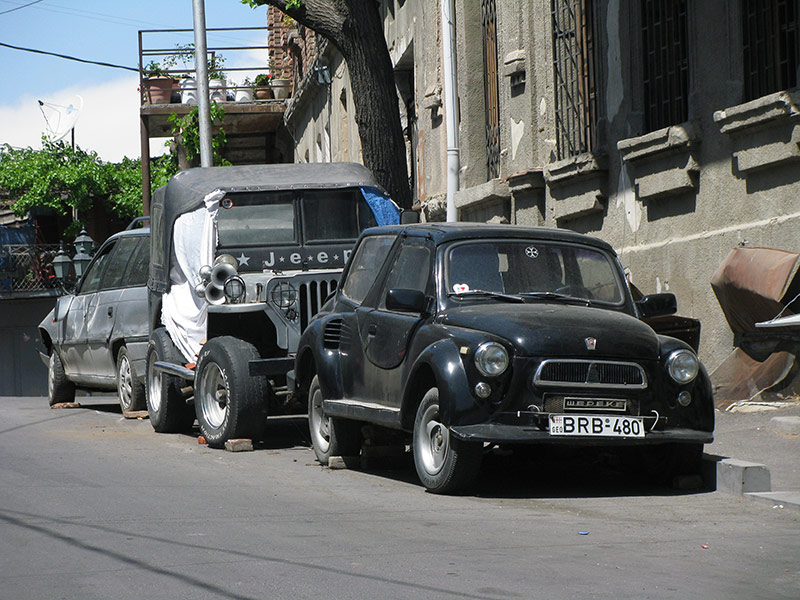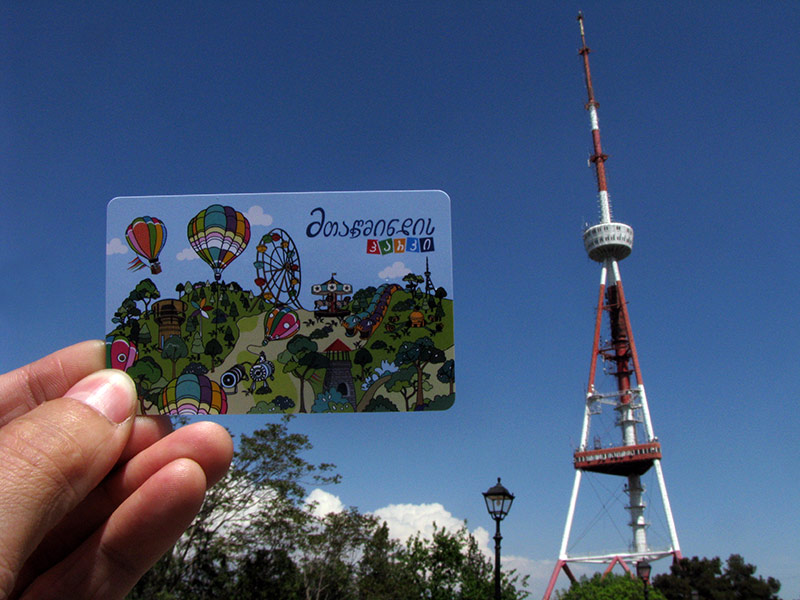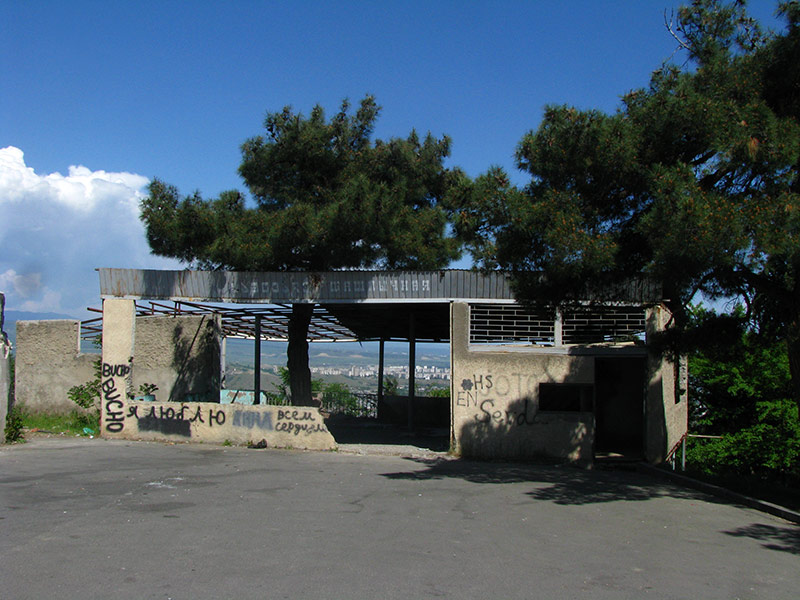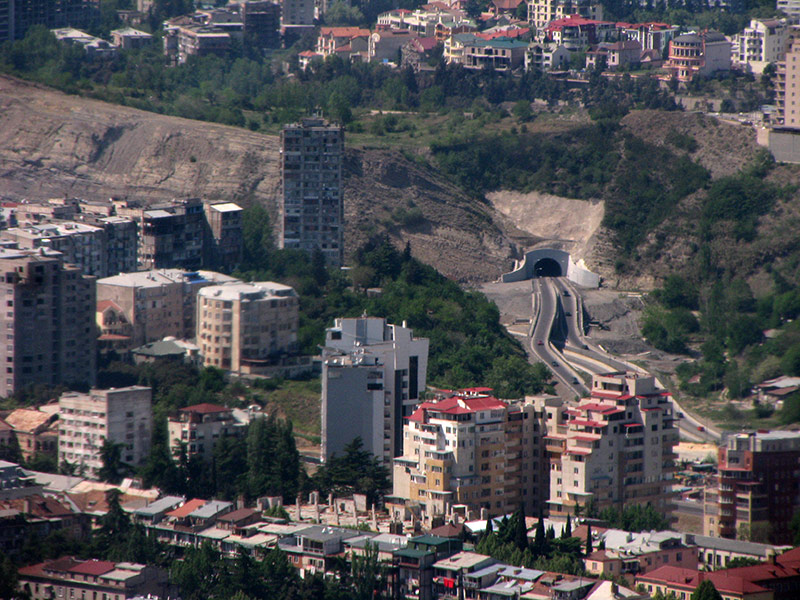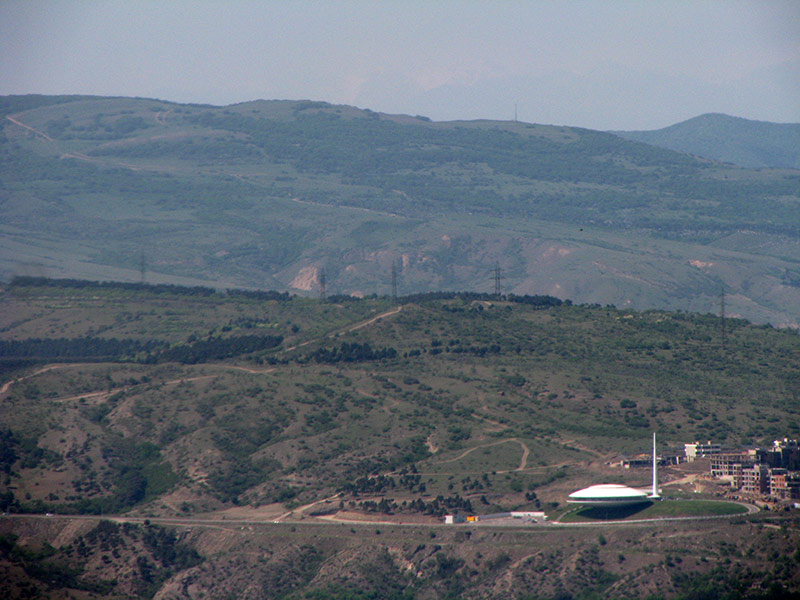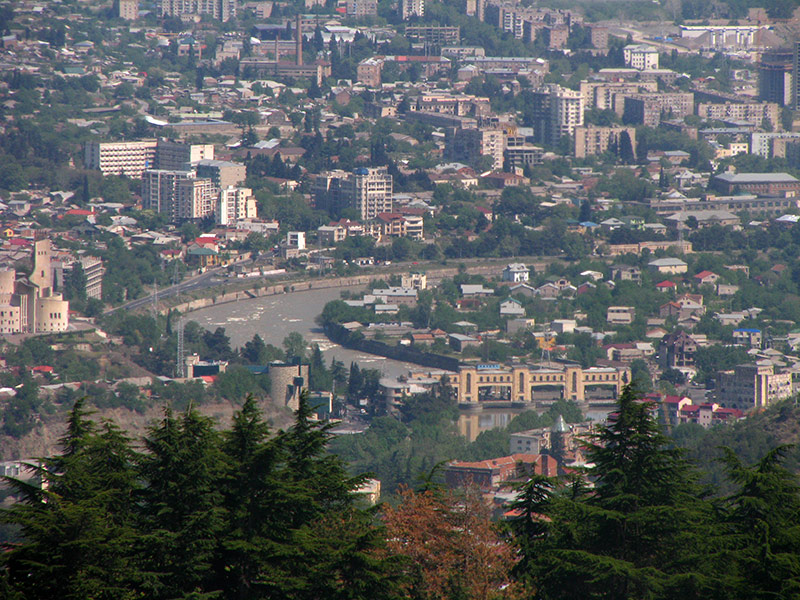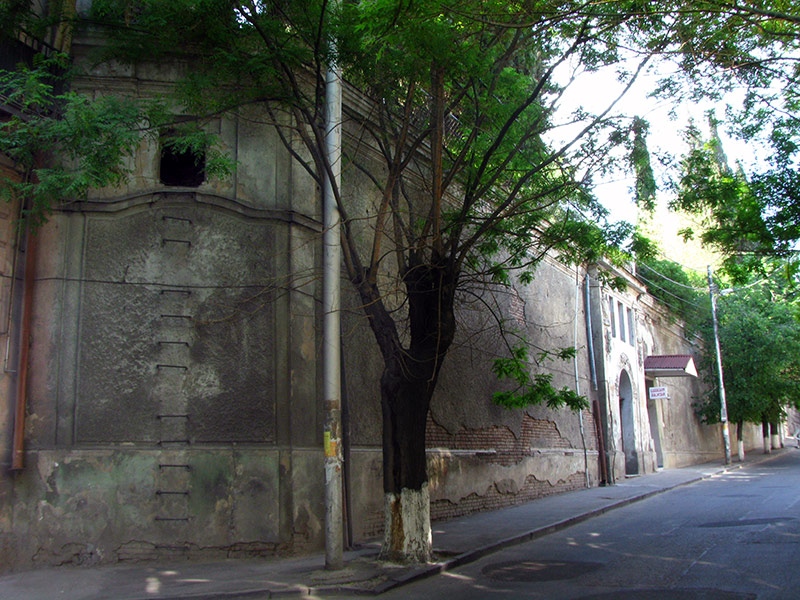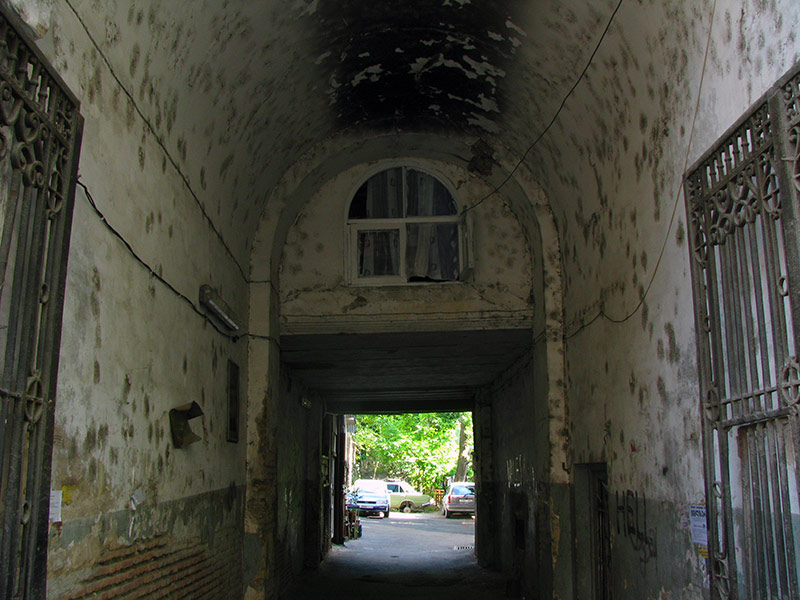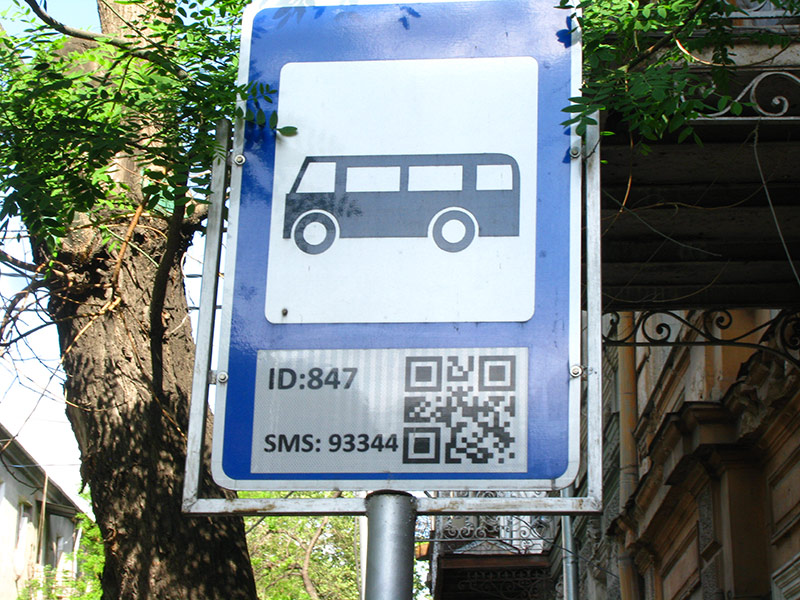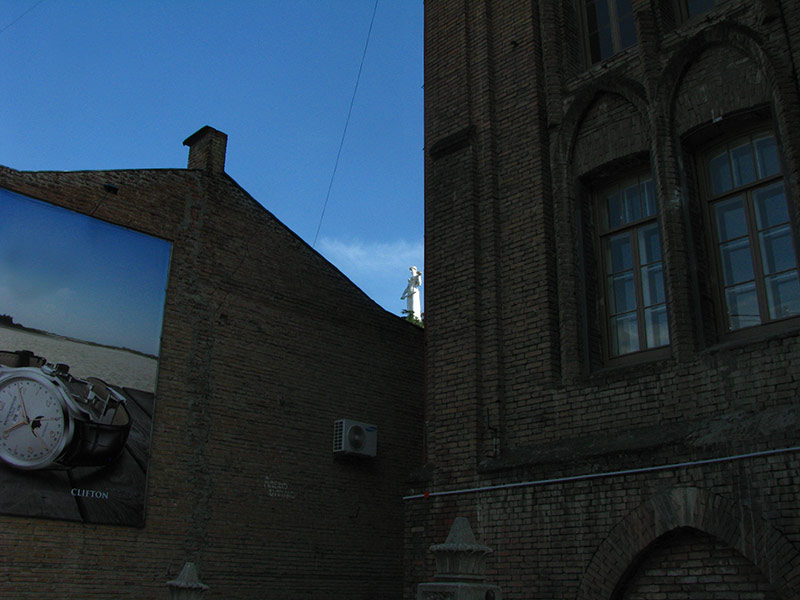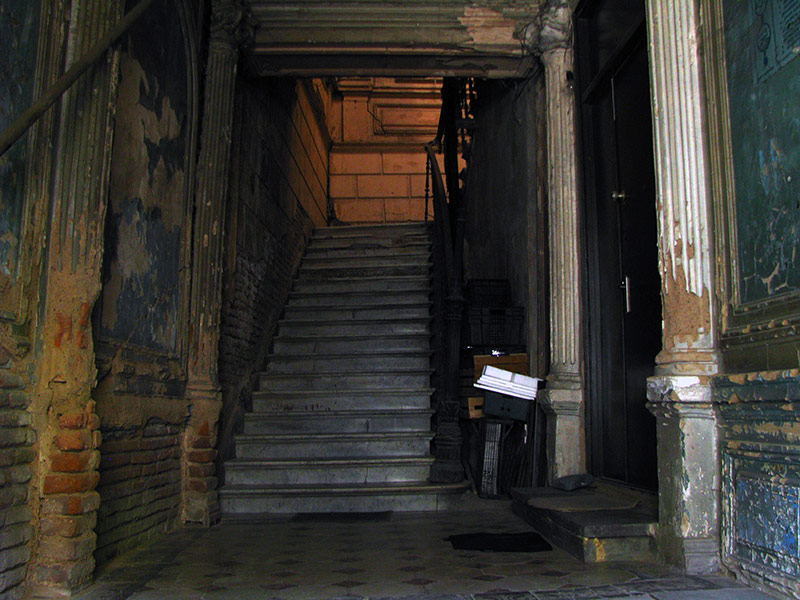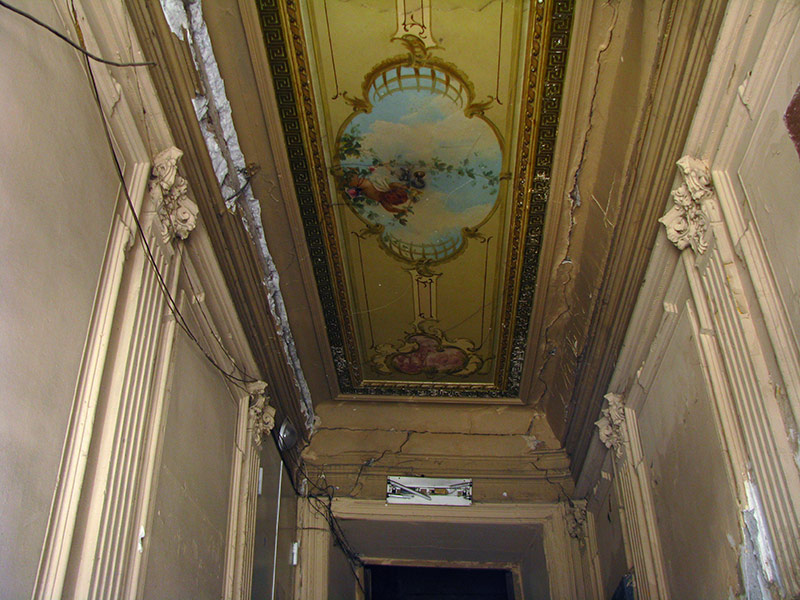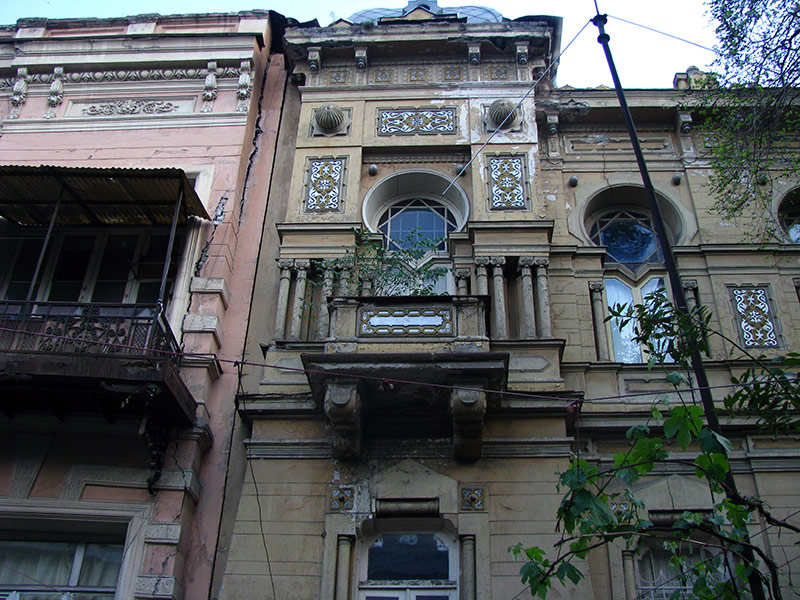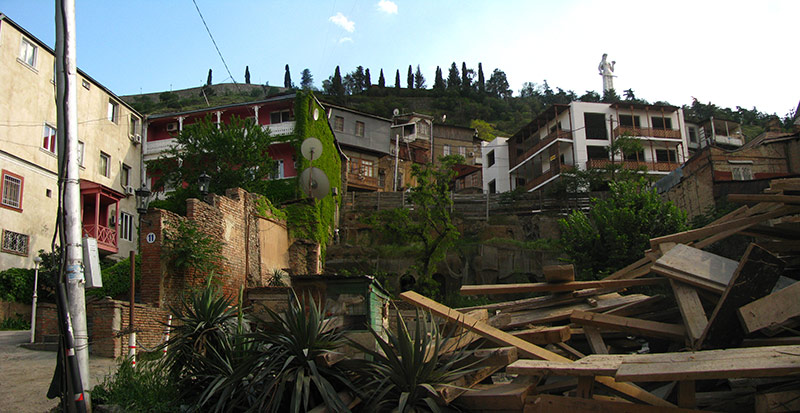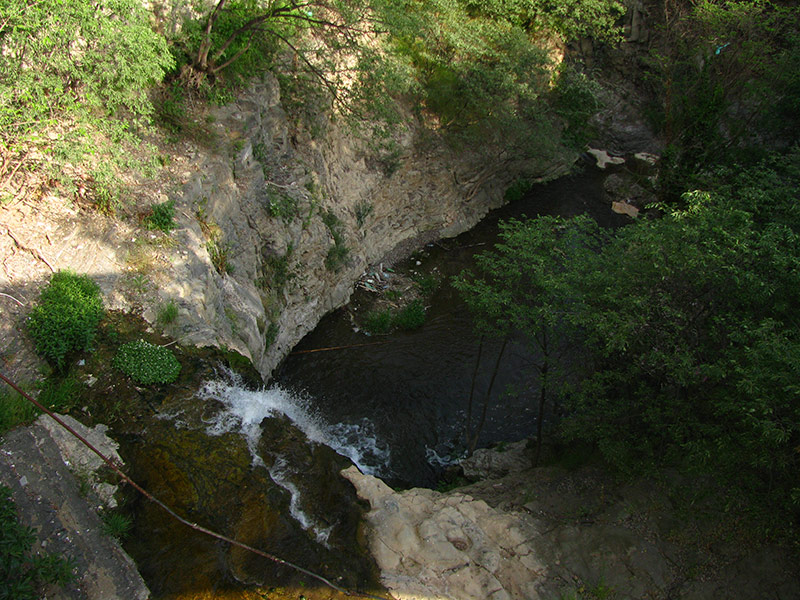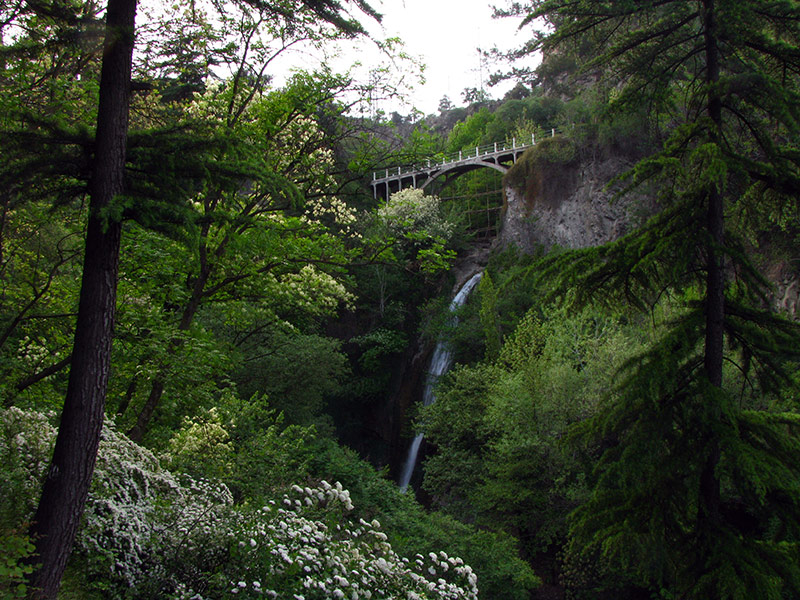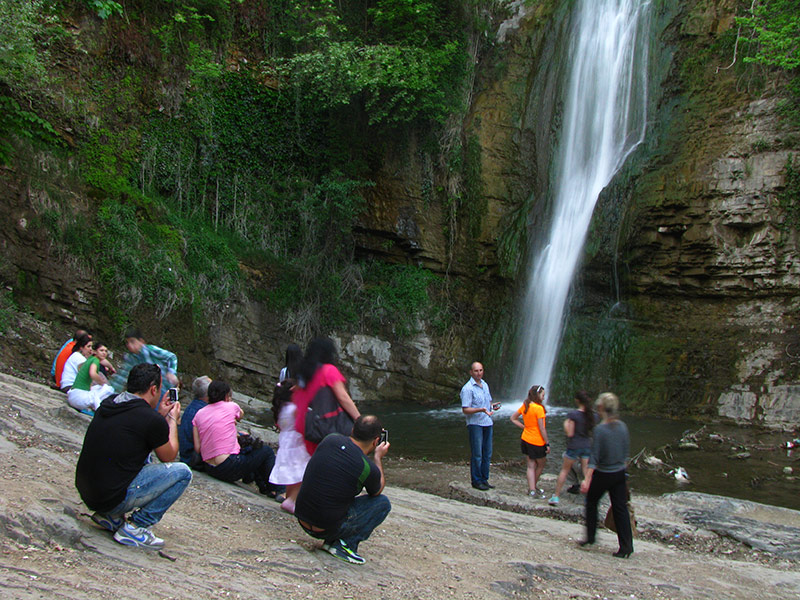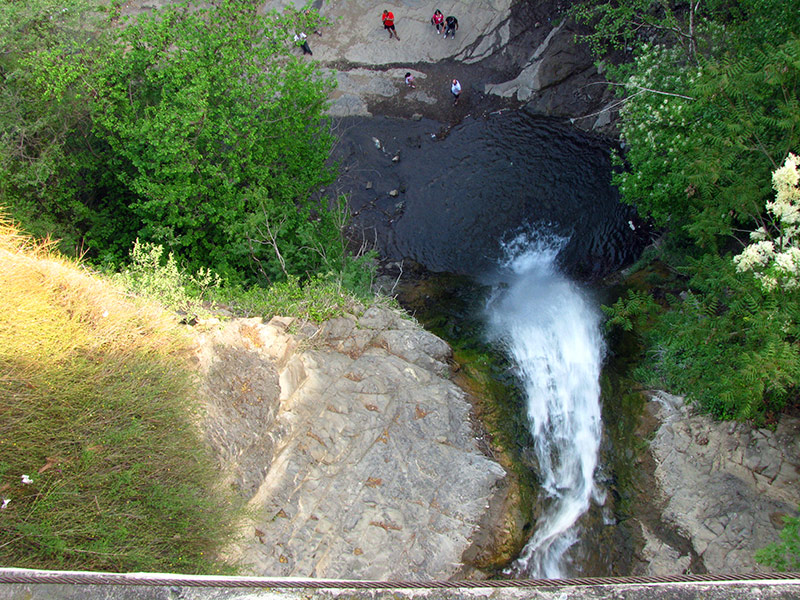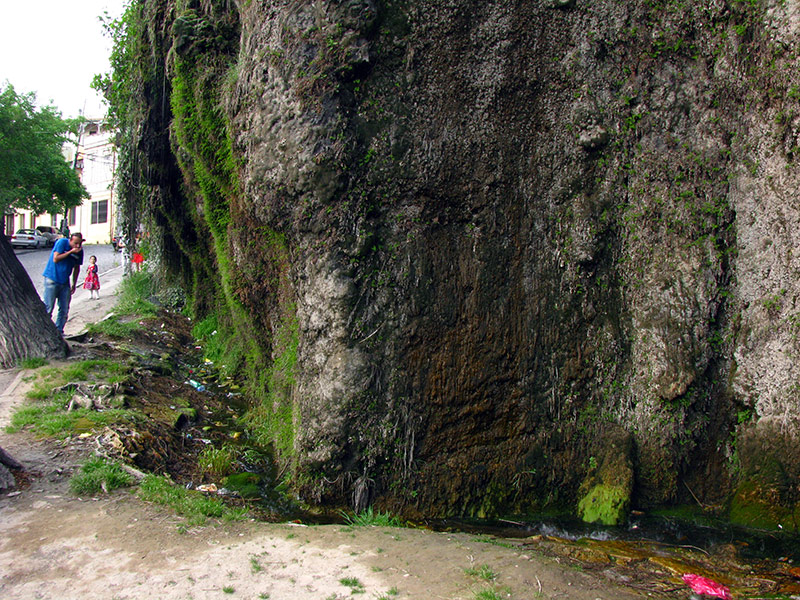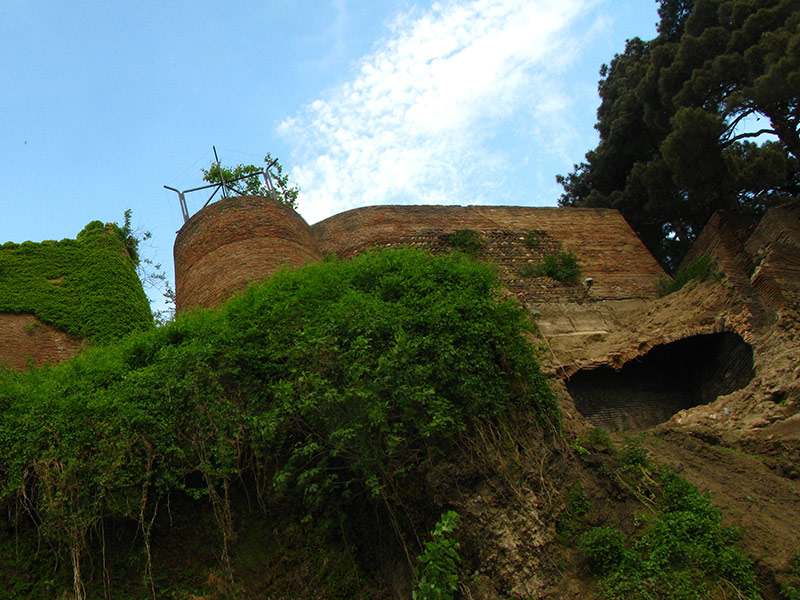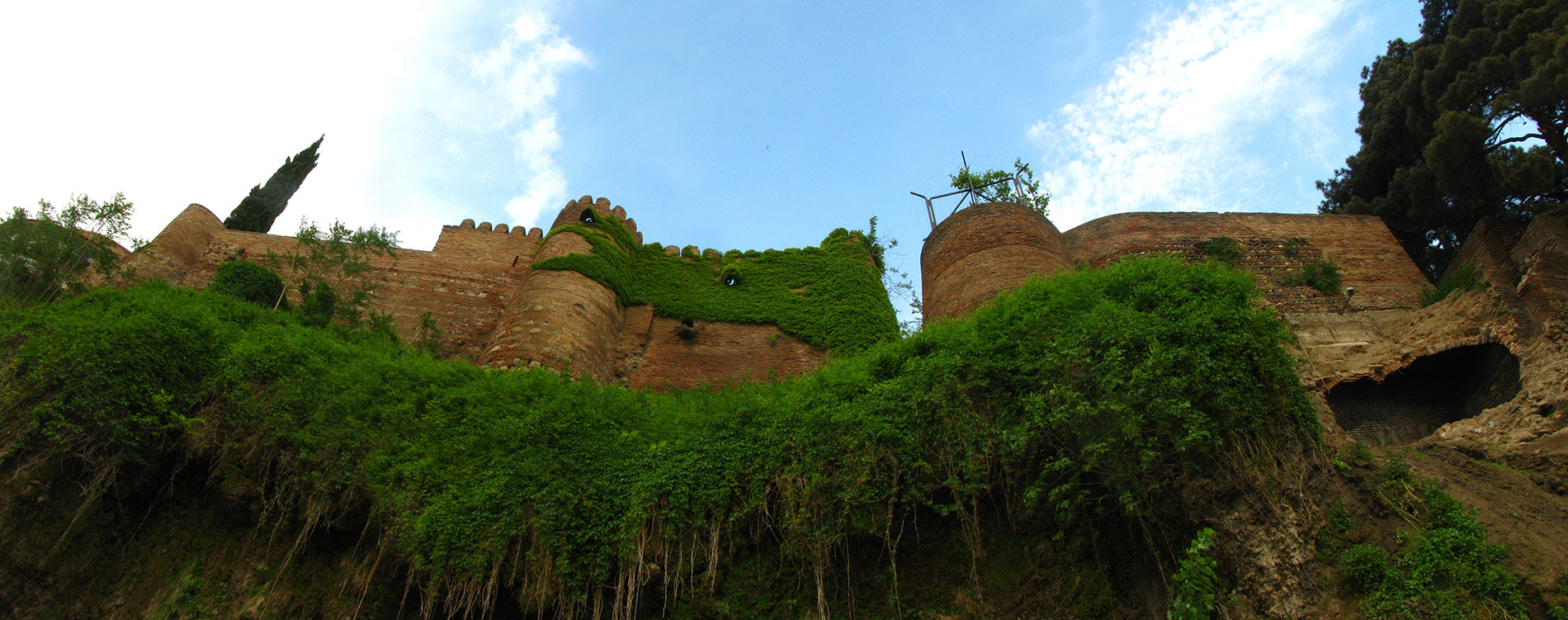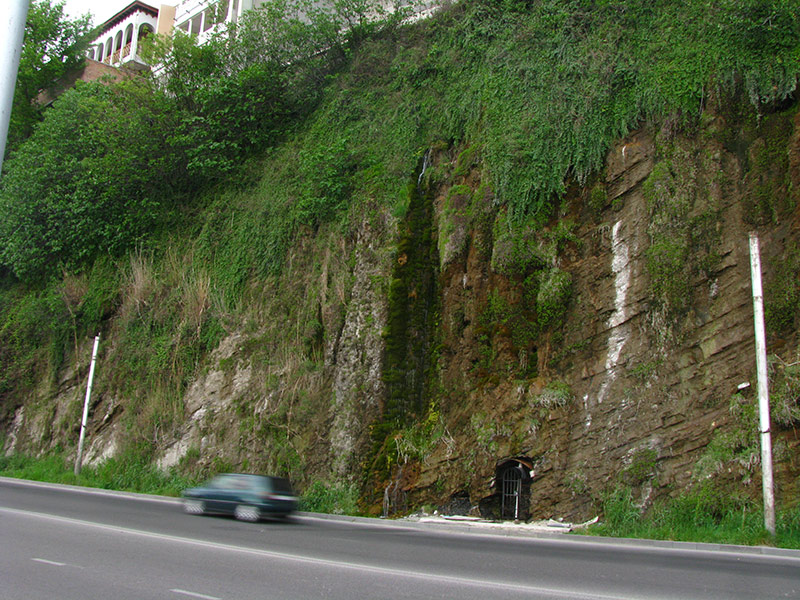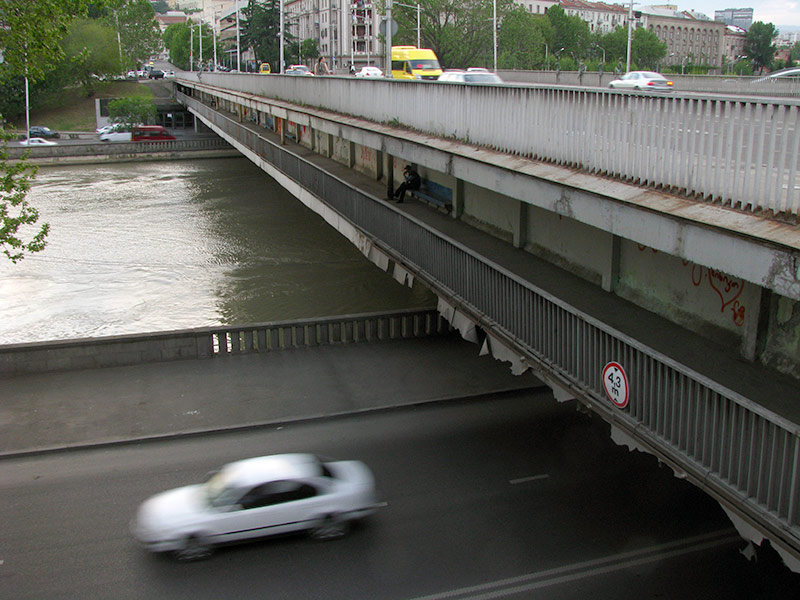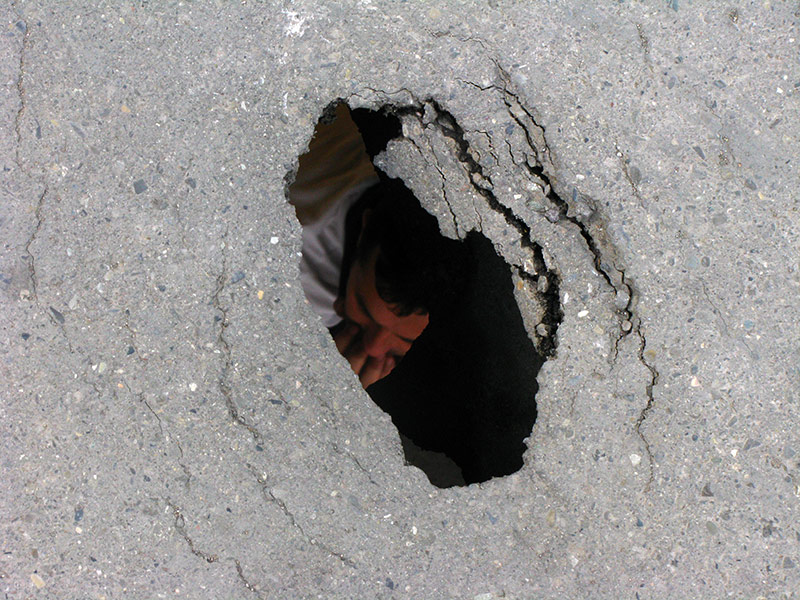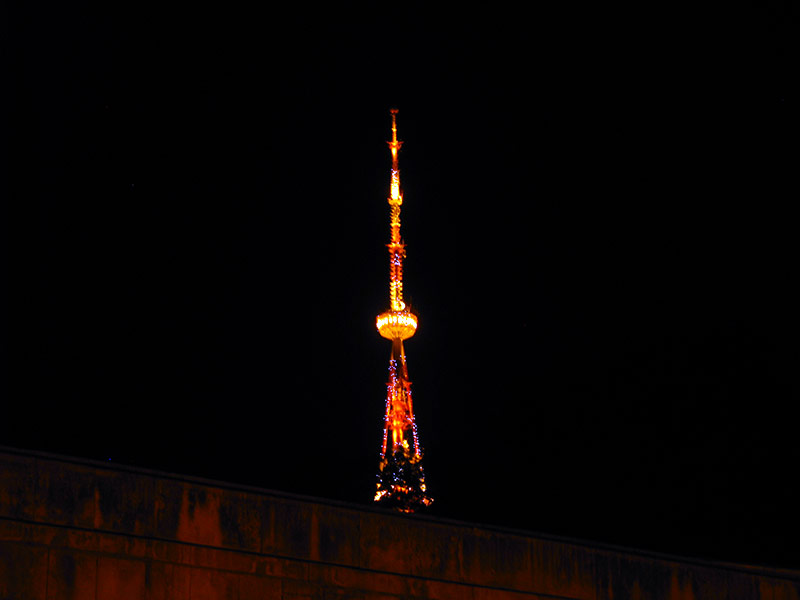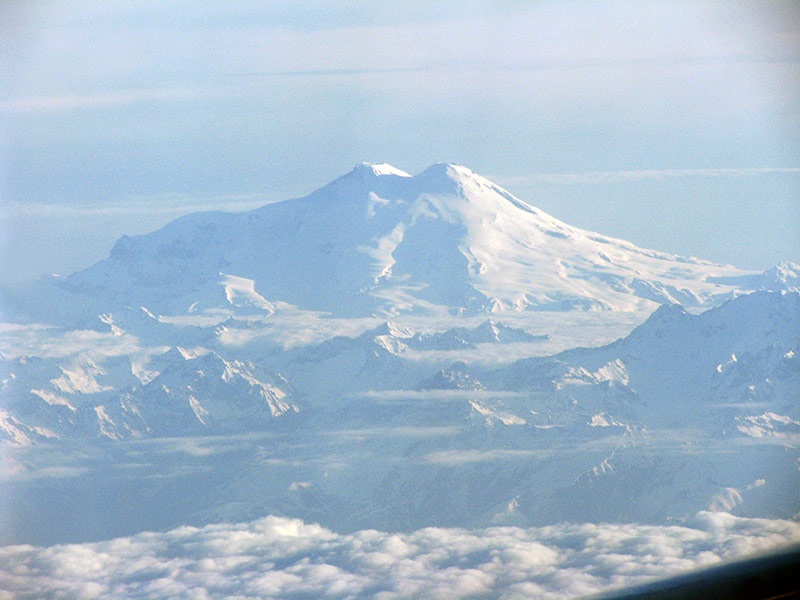Our second day in the beautiful capital of beautiful Georgia.
We stayed in an inexpensive Hostel Georgia close to the train station. Attempted to get into the Pirosmani museum once again, to the same negative results. One more photo through the door:
The backyard of the closed museum.
The schedule said it should have been open.
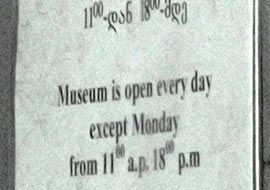
We walked to Mushtaidi park to look at the children's railway of Tbilisi. On our way there, we saw this widest antenna ever:
The stadium had the announcement of an upcoming concert with an eclectic lineup that combined Deep Purple with Infected Mushroom, Modeselector and Tricky.
Rust in architecture. Nicely done.
Remnants of a door intercom on a random house entrance.
Inside another random house — a shared balcony with an exit into the backyard. The address is Georgi Chitaia street, 19
Mushtaidi park — the whole park! — was closed due to the Easter and May 1st combo! It was not even possible to sit in the shadows under the trees! I had to resort to taking photos through the fence again. Holy Christ.
A nicely drawn sheep decorated a carriage.
We found the park entrance later: there was a backdoor because there was a living house inside the children's railway loop, and it had an access road. It was possible to enter the park from that access road. But... We decided not to and left for other places.
Here's the locomotive of that railway.
We returned to the center to get onto the second ropeway and the Mtatsminda vertical tram. Aargh, we were lazy when preparing the route at home. The second ropeway did not work, but unfortunately, it was not due to the Easter + May 1st combo. Way worse. There has been a deadly accident on it back in 1990 — see the Wikipedia article Tbilisi cable car crash. Only the pillar was towering over the houses as a silent reminder about the sad day:
We had to go to the Mtatsminda funicular, and we chose side streets to get to that destination. Something resembling a printing machine was dug into on one of these streets.
Artificial leaves were covering the whole wall of some building.
The upper station of the funicular resembled a government building a bit.
The old houses. Such a beauty! So many stairs! True, but what about installing a piano inside?
An interesting car of unknown make and model. The word «Wepeke» was not bringing anything up in Google search. Could it be a modified old «Zaporozhets» ZAZ-965?
The funicular carried us up to a plateau on the Mtatsminda hill, having the park with the same name. A separate magnetic card was needed to pay for the funicular — the one from the subway was not accepted, this being somewhat of an inconvenience. The funicular cards were not supposed to be returned, which was also annoying. The cost of the ride was two lari one way, but I had to pay two lari more — for the card. This was nothing but stupid. The card was to be used for paying at the park, too.
There was not much to do in the park itself — only consume the good views. The place was polluted with bad music and audio advertisement. A ruined shashlik kiosk was serving as a frame for the photos of Tbilisi.
We were already on a mountain, but it was possible to go even higher for two lari more — in a Ferris wheel cabin. The Vake-Saburtalo tunnel was visible from there, among other things.
Like this center for emergencies. If you make a phone call to 112 in Sakartvelo, the receiver will be picked up somewhere inside that non-flying saucer-like building.
Or the Ortachal hydroelectric power plant.
We did not use the funicular on our way down. More side streets were to be seen. An interesting hole in the wall:
I wonder whether an architectural term exists for such an anti-mansarde under and inside an archway?
Modern technologies instead of human languages.
I scanned that QR after several years. Its contents were the following: smsto:93344:847. My phone was not set up to react to a smsto: scheme.
I guess, the idea was that the phones should have created a draft of an SMS message with the tet 847 to the number 93344.
The Kartlis Deda statue was seen through a slit between two buildings on Lado Asatiani street.
The old buildings of Lado Asatiani street were falling apart.
There were cracks and fresco on the walls.
There were cracks on outside walls, too.
Next turn led us to the Betlemi street, which was all in renovation and construction works, some old houses excluded. One more angle of the Kartlis Deda was available from here.
I went to the botanical garden. Got to the bridge that I saw from the above Sololaki alley. That bridge was standing over a small waterfall around 1.5 metres high.
There was one more notable waterfall a bit further upstream, on the same Tsavkisistskali (Samarkhakhevi) stream. There you have it — two big waterfalls just in the center of the city. Obviously, there were many more. Tbilisi is not flat. A view of the appropriately named Botanical Garden Waterfall from a distance:
A view from the above bridge.
When we were here during our first day, it was already dark, and we could only hear some water flowing. Now, in broad daylight, many thin water drops were visible from a cliff over the sidewalk. This place can't be googled. A person was passing by, and told us this place was called «silver tears» but that did not come up on Google at all, in any language I tried.
Some buildings were standing on that cliff, most notably, the Sachino palace of queen Daredjan, built in 1776.
One of streets was passing right near the falling water.
The two layers of the Baratashvili bridge: cars on top, pedestrians on bottom.
Pedestrian sidewalks existed on the top layer, too. One of these sidewalks had this hole, with people visible through it below.
That was it. We ate some georgian food, stared at the illuminated TV tower at night, and headed for the marshrutka 37 «train station — airport».
Our plane passed by Elbrus. It is said to be a rare possibility to witness this mountain two peaks without clouds.
